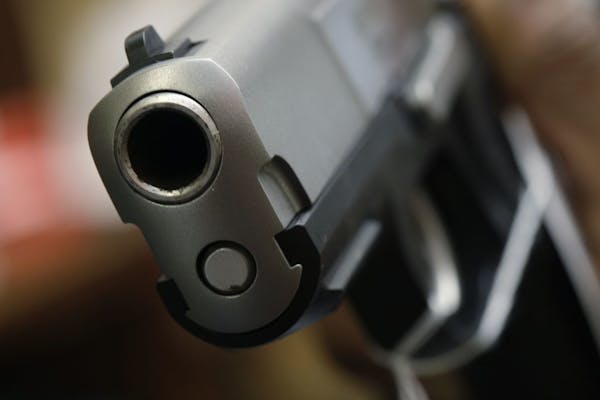WASHINGTON - The White House is weighing a far broader and more comprehensive approach to curbing the nation's gun violence than simply reinstating an expired ban on assault weapons and high-capacity ammunition clips, according to multiple people involved in the administration's discussions.
A working group led by Vice President Joe Biden is seriously considering measures backed by key law enforcement leaders that would require universal background checks for firearm buyers, track the movement and sale of weapons through a national database, strengthen mental health checks, and stiffen penalties for carrying guns near schools or giving them to minors, the sources said.
To sell such changes, the White House is developing strategies to work around the National Rifle Association that one source said could include rallying support from Wal-Mart and other gun retailers for measures that would benefit their businesses. White House aides have also been in regular contact with advisers to New York Mayor Michael Bloomberg, a political independent and an outspoken gun-control advocate who could emerge as a powerful surrogate for the Obama administration's agenda. NRA officials declined a request for comment.
The Biden group, formed last month after the Dec. 14 massacre at a Newtown, Conn., elementary school that killed 20 children and six adults, plans to submit a package of recommendations to President Obama this month. Once Obama's proposals are set, he plans to lead a public-relations offensive to generate popular support.
"They are very clearly committed to looking at this issue comprehensively," said Dan Gross, president of the Brady Campaign to Prevent Gun Violence, who has been involved in the discussions. The proposals under consideration, he added, are "a deeper exploration than just the assault-weapons ban."
Biden's group also has expanded its focus to include measures that would not need congressional approval and could be implemented by executive action, said interest-group leaders who have discussed options with Biden and Cabinet secretaries. Possibilities include changes to federal mental-health programs and modernization of gun-tracking efforts by the Bureau of Alcohol, Tobacco, Firearms and Explosives.
The Dec. 20 summit included a dozen law enforcement leaders as well as Attorney General Eric Holder Jr., Education Secretary Arne Duncan, Homeland Security Secretary Janet Napolitano and Health and Human Services Secretary Kathleen Sebelius.
Biden "wanted to talk to us about the assault-weapons ban, automatic weapons, high-capacity magazines," said Hennepin County Sheriff Richard Stanek, president of the Major County Sheriffs' Association.
The vice president said the White House group would consider a variety of proposals -- from requiring background checks for all gun buyers to creating a new database that would allow the ATF to track all gun sales, participants said.
Stanek said the meeting also included discussion of mental-health issues, violence in video games and movies, and the poor quality of information contained in databases used to conduct criminal background checks before issuing gun permits.
The White House is also developing strategies to navigate the emotionally fraught terrain of gun politics once final policy decisions are made. The administration is quietly talking with a diverse array of interest groups, including religious leaders, mental-health professionals and hunters, to build as broad a coalition as possible, those involved in the discussions said.
One potential strategy would be to win support for specific measures from interest groups that are normally aligned with the NRA, said one person who works closely with the administration. For instance, this person suggested, Wal-Mart and other major gun retailers may have an incentive to support closing a loophole that allows people to bypass background checks if they buy firearms at gun shows or through other types of private sales. That could result in more people buying guns in retail stores.
Obama's advisers have calculated that the longer they wait, the more distance there is from the Newtown massacre and the greater the risk that the bipartisan political will to tackle gun violence will dissipate.
"This is not something that I will be putting off," Obama said on "Meet the Press" last Sunday.
Stanek said, "the vice president indicated that there was a very short timeline for him to get back to the president with his recommendations because the American public has a short memory."
Biden's new Title IX rules protect LGBTQ+ students, but avoid addressing transgender athletes

Person who was on fire outside Trump's hush money trial is rushed away on a stretcher
The Latest | Person rushed away on stretcher after fire extinguished outside Trump hush money trial
Attorneys argue that Florida law discriminates against Chinese nationals trying to buy homes

